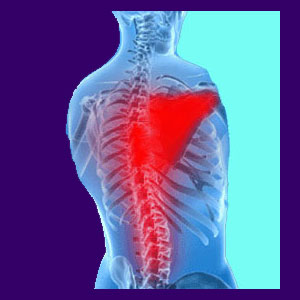
A frozen shoulder is a very disabling condition in which the affected patient loses the ability to move the shoulder joint effectively or all together. This condition, medically named adhesive capsulitis, can occur from a great number of structural issues and disease processes.
However, in many cases, the source is regional ischemia of the shoulder joint and the causation is related to the psychosomatic process. This mindbody occurrence has been well documented by Dr. John Sarno in his study of tension myositis pain patients.
While some patients do suffer structural reasons for a decreased ROM in the shoulder joint, many others actually create the condition themselves through activity avoidance. This basically means that shoulder pain exists and therefore, the patient avoids using the affected arm. Over time, the joint becomes progressively less able to move due to atrophy and capsule shrinkage, enacting a frozen condition due more to neglect than to actual impingement.
Let’s investigate alternative causes of loss of range of motion in the shoulder joint and discover how to cure these syndromes without drugs or surgery.
What is a Frozen Shoulder?
Adhesive capsulitis consists of pain and limited movement in the actual shoulder joint. However, many patients may also suffer symptoms in other areas, which are often related to the shoulder joint concern. Patients typically lose the range of motion in the shoulder as they guard it to avoid pain from movement. This activity avoidance causes various processes to take shape which actually prevents the joint from functioning properly over time. Some of these degenerative issues which set in with a purposeful lack of motion include, inflammation, a decrease in the actual size of the joint capsule and even the growth of tissue attachments in the joint itself.
Neck pain, elbow pain or general upper back pain are sometimes seen.
Adhesive Capsulitis Causes
Many patients are diagnosed with shoulder injuries, such as rotator cuff tears, that are responsible for enacting the pain which sets off this vicious cycle. Some of the related factors associated with a shoulder which is frozen include: rheumatoid arthritis and other autoimmune diseases, fibromyalgia pain and a variety of inflammatory diseases.
Females are more susceptible to suffering from a frozen shoulder capsule, especially in conjunction with other chronic pain conditions.
Many syndromes are misdiagnosed as severe osteoarthritis conditions, in which the joint is not frozen, but is too unbearably painful to move. In many circumstances, the structural issues found during diagnostic testing turn out to be innocent and coincidental to the symptoms experienced, leading many care providers to suspect psychosomatic ischemia as the real source of pain. I see this often in degenerative changes related to martial arts training.
Frozen Shoulder Recovery Tips
So many cases of this condition have resolved using basic knowledge therapy techniques, proving a complete misdiagnosis in the suspected anatomical causes. Unfortunately, most patients will not consider this possibility until all seemingly appropriate medical treatments have failed. This includes unnecessary shoulder surgery in a few sad cases.
Remember that the shoulder is one of the many joints affected by the mindbody process and is targeted as the site of numerous painful conditions often mistakenly blamed on structural issues which reside there normally and coincidentally.
If your shoulder pain or limited range of motion has not responded to more traditional medical methods, you may consider trying an alternative approach in the form of knowledge therapy. At least there are no risks with this path of care and you may just find measurable relief.
Back Pain > Psychologically Induced Pain Syndromes > Frozen Shoulder




